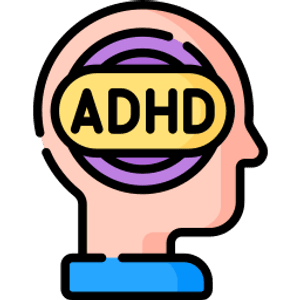The intersection of school and mental health is a crucial topic, as academic life significantly impacts students' emotional well-being. The school environment provides both opportunities and challenges that can affect mental health. Understanding these dynamics is essential for students, parents, and educators to create a balanced and supportive educational experience.
The Positive Impact of School on Mental Health
1. Socialization and Community
One of the primary benefits of attending school is the opportunity for socialization. Schools provide a structured environment where students can interact with peers, develop friendships, and build social skills. Positive social interactions can enhance self-esteem, provide emotional support, and contribute to a sense of belonging. Engaging in extracurricular activities, such as sports or clubs, further allows students to connect with others who share similar interests.
2. Structured Routine
School offers a structured routine that can be beneficial for mental health. Regular schedules and routines provide a sense of stability and predictability, which can reduce anxiety and stress. Having a set time for classes, meals, and activities helps students manage their time effectively and develop organizational skills.
3. Intellectual Stimulation
Academic challenges and intellectual stimulation can contribute to cognitive development and a sense of accomplishment. Engaging in learning and problem-solving activities can boost self-confidence and foster a growth mindset. Successfully meeting academic goals can provide a sense of purpose and motivation.
4. Supportive Resources
Many schools offer resources to support students' mental health, such as counseling services, health education programs, and support groups. Access to these resources can help students manage stress, cope with challenges, and seek professional help when needed.
The Challenges of Academic Life on Mental Health
1. Academic Pressure
One of the most significant challenges in academic life is the pressure to perform. High expectations from parents, teachers, and peers can create stress and anxiety. The pressure to achieve high grades, excel in extracurricular activities, and meet deadlines can lead to burnout and mental health issues.
2. Social Comparison and Bullying
Social comparison is another challenge that can impact mental health. Students may feel pressured to conform to social norms or compete with peers, leading to feelings of inadequacy or low self-esteem. Additionally, bullying and peer conflict can significantly affect a student's emotional well-being, leading to anxiety, depression, and withdrawal from school activities.
3. Balancing Responsibilities
The demands of academic life, combined with extracurricular activities, family responsibilities, and social commitments, can create a heavy workload for students. Balancing these responsibilities can be overwhelming and lead to stress and fatigue. Time management and organizational skills are essential but can be challenging for many students to develop.
4. Mental Health Stigma
Despite increasing awareness, stigma around mental health issues can prevent students from seeking help. Fear of judgment or perceived weakness may discourage students from talking about their struggles or accessing available resources. This lack of support can exacerbate mental health issues and hinder recovery.
Strategies for Managing Mental Health in School
1. Develop Coping Skills
Teaching students effective coping skills is essential for managing stress and maintaining mental health. Techniques such as mindfulness, relaxation exercises, and time management can help students handle academic pressures and daily challenges. Encouraging regular physical activity and healthy eating habits also supports overall well-being.
2. Promote Open Communication
Creating an environment where students feel comfortable discussing their mental health is crucial. Parents, teachers, and school counselors should encourage open communication and provide support. Regular check-ins and fostering a supportive atmosphere can help students feel valued and understood.
3. Encourage Balance
Promoting a balanced lifestyle is key to managing academic stress. Encouraging students to set realistic goals, prioritize tasks, and take breaks can help prevent burnout. It's important for students to have time for relaxation, hobbies, and social activities outside of academics.
4. Access to Resources
Schools should ensure that students have access to mental health resources and support services. This includes having trained counselors available, implementing mental health education programs, and providing information on external resources. Schools can also work to reduce stigma by promoting mental health awareness and creating a supportive culture.
The Role of Parents and Educators
1. Supportive Parenting
Parents play a vital role in supporting their children's mental health. Providing encouragement, understanding, and a safe space to discuss concerns can help students manage academic stress. Parents should also be proactive in seeking help if they notice signs of mental health issues and collaborate with school professionals to support their child.
2. Educator Training
Educators need to be equipped with the skills to recognize and address mental health issues in students. Training teachers to identify signs of distress, provide support, and refer students to appropriate resources can make a significant difference. Schools should also foster a positive and inclusive environment where mental health is prioritized.
Conclusion
Balancing the benefits and challenges of academic life is crucial for maintaining mental health. Schools provide valuable opportunities for socialization, intellectual growth, and structure, but they also present challenges such as academic pressure, social comparison, and balancing responsibilities. By implementing strategies for managing stress, promoting open communication, and ensuring access to resources, we can create a supportive environment that enhances students' mental well-being. Collaboration between students, parents, and educators is key to achieving this balance and fostering a healthy and productive academic experience.
